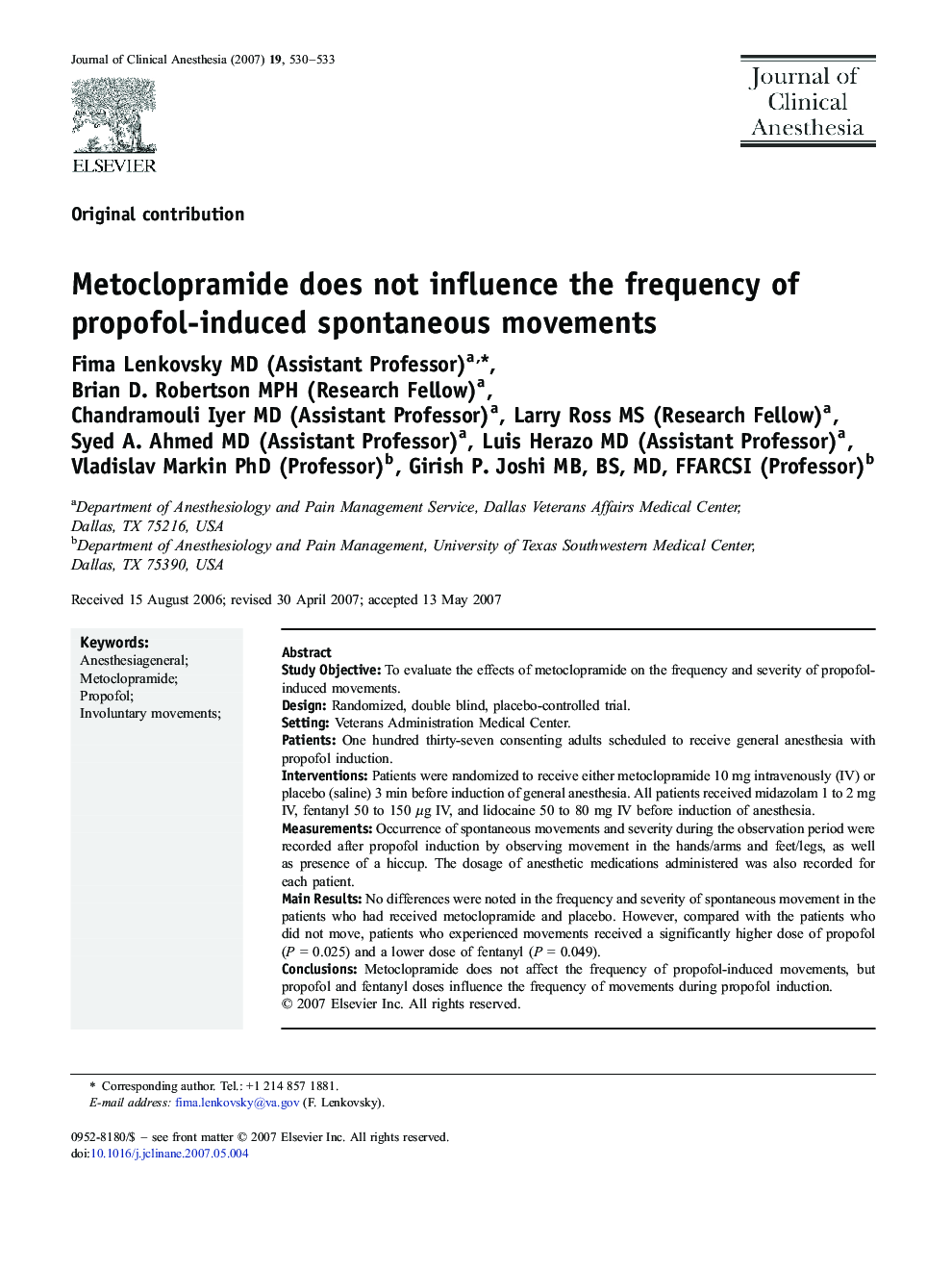| Article ID | Journal | Published Year | Pages | File Type |
|---|---|---|---|---|
| 2764199 | Journal of Clinical Anesthesia | 2007 | 4 Pages |
Study ObjectiveTo evaluate the effects of metoclopramide on the frequency and severity of propofol-induced movements.DesignRandomized, double blind, placebo-controlled trial.SettingVeterans Administration Medical Center.PatientsOne hundred thirty-seven consenting adults scheduled to receive general anesthesia with propofol induction.InterventionsPatients were randomized to receive either metoclopramide 10 mg intravenously (IV) or placebo (saline) 3 min before induction of general anesthesia. All patients received midazolam 1 to 2 mg IV, fentanyl 50 to 150 μg IV, and lidocaine 50 to 80 mg IV before induction of anesthesia.MeasurementsOccurrence of spontaneous movements and severity during the observation period were recorded after propofol induction by observing movement in the hands/arms and feet/legs, as well as presence of a hiccup. The dosage of anesthetic medications administered was also recorded for each patient.Main ResultsNo differences were noted in the frequency and severity of spontaneous movement in the patients who had received metoclopramide and placebo. However, compared with the patients who did not move, patients who experienced movements received a significantly higher dose of propofol (P = 0.025) and a lower dose of fentanyl (P = 0.049).ConclusionsMetoclopramide does not affect the frequency of propofol-induced movements, but propofol and fentanyl doses influence the frequency of movements during propofol induction.
